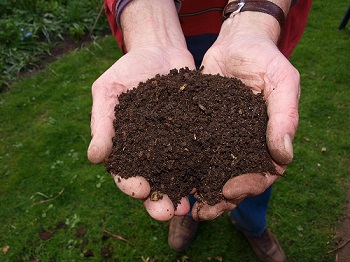 By Bob Dailey, Master Gardener
By Bob Dailey, Master Gardener
Remember the high school science class? No, neither do I, but if I had been paying attention, I would have learned about the “litmus test.”
Here’s how it went, I’m told. First, you dip a piece of litmus paper into a solution, and it turns color…either red or blue. If the paper turns red, then the solution is acidic. If it’s blue, it’s “basic” or alkaline. If you’re interested in what litmus paper is, I think it’s made from lichens. I could go into that a little deeper, but I’m not that interested. If you are, either Google it or send me a message.
The critical point is that it tells you if the solution is acidic or alkaline. Chemists call the range between acidic and alkaline “pH.”
The term “pH” was first described by Danish biochemist Søren Peter Lauritz Sørensen in 1909. The O with the slash is called a “minuscule” by the way, and that’s all I know about it
pH is an abbreviation for “power of hydrogen” where “p” is short for the German word for power (potenz), and H is the element symbol for hydrogen. Why a Danish scientist used a German word is Greek to me, but he was a scientist, and I’m not, so I’ll just go with the flow. The H is capitalized because it is standard to capitalize element symbols. So now you understand about as much as I do.
Chemists and soil scientists have assigned a number to the pH test, ranging from 0 (highly acidic) to 14 (highly alkaline).
Now we know that soil is made up of living and non-living materials, both inorganic and organic. This concoction of components creates some complicated chemistry (how’s that for alliteration). The pH designation and number are considered a “master variable” in soil science.
If I (or you, as the case may be) change the pH of a soil, the process can change biological, biochemical, and chemical processes in the soil and the interaction of those processes.
And here’s how it affects gardeners and farmers.
Let’s use phosphorus as an example. As most gardeners know, phosphorus is one of the three major nutrients that plants need. The other two are nitrogen and potassium. When you buy fertilizer, the law requires that each container on the bag provides the percentage of these three chemicals…nitrogen (N), phosphorus (P) and potassium (K), or NPK.
Phosphorus is an excellent example of how pH can help or prevent plants from taking up nutrients in the soil. Phosphorus is essential to a plant. It plays a role in photosynthesis, transpiration, energy storage and transfer, cell division, cell enlargement, and several other processes in plants. If the pH of the soil is between 5.5 (somewhat acidic) and 8.5 (slightly alkaline), plants can take in phosphorus.
But if the pH is outside those levels (lower than 5.5 on the acidic side or higher than 8.5 on the alkaline side), the phosphorus interacts with other soil minerals like iron oxides and carbonates. This interaction then locks up the phosphorus and make it unavailable to plants.
There is a “Goldilocks Zone” where the pH is just right. That range is between 6.5 and 7.5. This is the range in which most plants can access the nutrients they need.
Plants not only need phosphorus, nitrogen potassium. They need an abundance of other nutrients…minerals like magnesium, sulfur and calcium, as well as trace elements of iron, copper, zinc, boron and molybdenum. Many of these nutrients are already in the soil, but, if the soil pH is outside the “Goldilock Zone”, the plant cannot access the,
How do you find out your pH? Get a soil test done. Here’s where you can go: